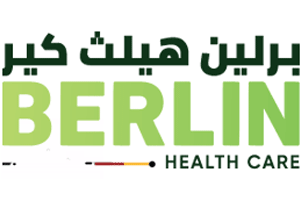Millions of people are identified with digestive diseases per year, ranging from a simple stomach problems to the potentially fatal colon cancer. The gastrointestinal system, as well as the liver, gallbladder, and pancreas, are all included.
The majority of digestive illnesses are extremely complex, having modest symptoms, and most of their origins are unclear. They can be genetic or developed as a result of a combination of variables like stress, exhaustion, nutrition, or smoking. Abusing alcohol puts you at the greatest risk of developing digestive problems.
A clear and detailed medical history and physical examination are required to arrive at a conclusion. Some patients may require more detailed medical tests. Those who specialise in the field are called gastroenterologists
Following all of your doctor’s directions on the day before your digestive health treatment and to contact your physician if you’ve any concerns about your treatment.
Colonoscopy
Colonoscopy is the most thorough way to check for both polyps and colorectal cancer.
Gastrointestinal Endoscopy
Endoscopy of the gastrointestinal tract is a useful technique for diagnosing, treating, and monitoring illnesses of the digestive system, including cancer.
Upper GI Endoscopy/EGD
A light scope is pushed through the body during that same treatment to detect issues such as swallowing disorders, reflux, nausea, chest pain, and also more.
Bronchoscopy
Bronchoscopy is a procedure which is used to identify lung disorders or to identify the nature of persistent coughing or bleeding.
Bronchial Thermoplasty
365 days a year, a non-sedated bronchoscopic treatment for long-term control of severe asthma.
Endoscopic Bronchial Ultrasound (EBUS)
To detect lung cancer and lesions, EBUS uses ultrasound technology to view objects in and around the bronchial tree and lungs.
Endoscopic Retrograde Cholangiopancreatogram (ERCP)
ERCP stands for endoscopic retrograde cholangiopancreatogram and is used to diagnose illnesses of the liver, gallbladder, bile ducts, and pancreas.
Esophageal Manometry/PH Monitoring
Manometry is a non-sedated method for diagnosing swallowing problems, acid reflux, and chest pain.
Sigmoidoscopy
A flexible sigmoidoscopy is a test that evaluates the large intestine’s lower section (colon).
The Gastroenterology division provides the following treatments and services:
- Endoscopic treatment of gastrointestinal (GI) mass lesions and tumors
- Endoscopic polypectomy
- Endoscopic mucosal resection (EMR)
- Therapeutic biliary and pancreatic intervention
- Endoscopic retrograde cholangiopancreatography (ERCP) with stone removal and biliary tract stenting
- Stenting for biliary lesions – malignancy/strictures via ERCP
- Endoscopic pancreatic duct stenting
- Stricture dilation in the GI tract
- Metal stenting in the GI tract
- Bariatric endoscopic procedures
- Placement of intragastric balloons
- Endoscopic treatment of GI bleed
- Endoscopic variceal ligation
- Injection therapy for fundal varix
- Injection + coagulation for GI bleeds
- Percutaneous endoscopic gastronomy (PEG)
- Dilation of GI strictures
- Achalasia dilation
- Key diagnostic and therapeutic procedures such as:
- 24 Hr. PH metry
- Abdominal ultrasound
- MRI scan
- Capsule Endoscopy
- Upper GI endoscopy
- Colonoscopy
- Endoscopic retrograde cholangiopancreatography (ERCP)

